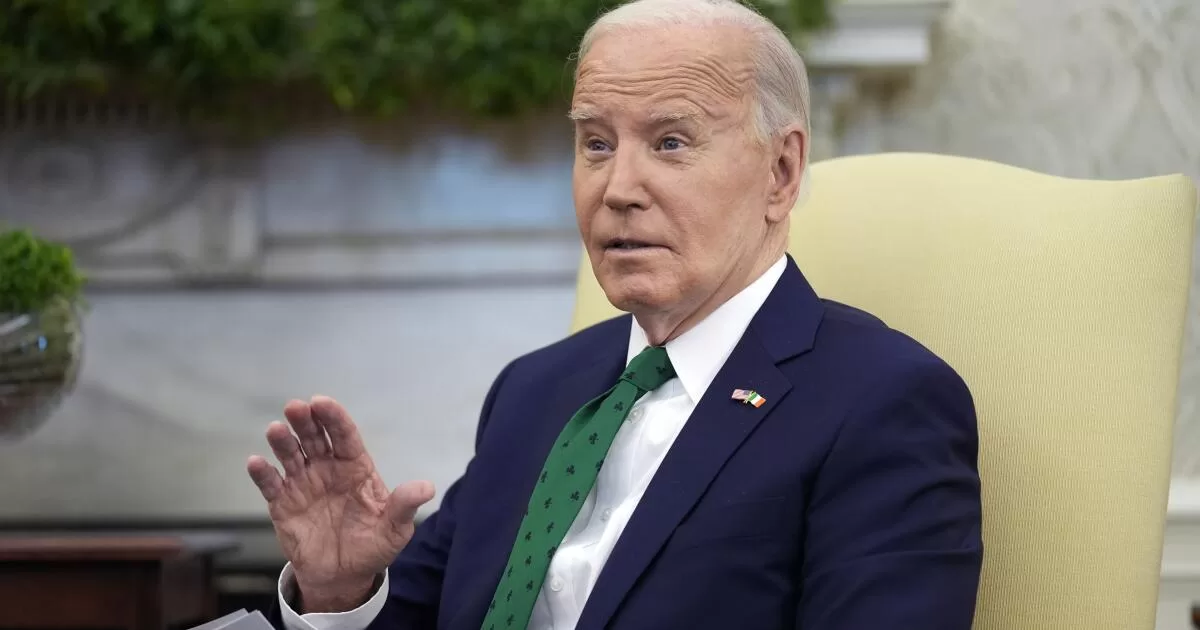Schumer, a Jewish Democrat from New York, sent tremors through both countries this week when he said Israeli Prime Minister Benjamin Netanyahu has “lost his way” and warned that “Israel cannot survive if it becomes a pariah” as Palestinian casualties continue to grow.
“He made a good speech,” Biden said in the Oval Office during a meeting with Ireland’s prime minister. “I think he expressed serious concerns shared not only by him but by many Americans.”
The Democratic president’s backing for Schumer could further frustrate Netanyahu, whose political party has already sharply criticized the U.S. senator.
“One would expect Sen. Schumer to respect Israel’s elected government and not undermine it,” Netanyahu’s political party, Likud, said in a statement. “This is always true, and even more so in wartime.”
Biden’s comments reflect the evolution of his views on the war, which began when Hamas attacked Israel on Oct. 7, killing about 1,200 Israelis. Since then, Israel’s counterattack has killed more than 30,000 Palestinians in Gaza.
After his State of the Union speech earlier this month, Biden said that he needed to have a “come-to-Jesus” conversation with Netanyahu. He also accused Netanyahu of “hurting Israel more than helping Israel” with his leadership of the war, in which Israel has killed tens of thousands of Palestinians in Gaza.
The latest challenge to the U.S.-Israeli relationship is Israel’s plan to pursue Hamas into Rafah, a city in southern Gaza where displaced Palestinians have gathered to avoid fighting in the north.
U.S. Secretary of State Antony J. Blinken, speaking from Vienna, said, “we have to see a clear and implementable plan” to safeguard civilians from an Israeli incursion.
“We have not seen such a plan,” he said.
But Blinken said tough conversations between allies do not mean the alliance is fracturing.
“That’s actually the strength of the relationship, to be able to speak clearly, candidly and directly,” he said.
Megerian writes for the Associated Press. AP writers Julia Frankel in Jerusalem, Matt Lee in Vienna and Darlene Superville in Washington contributed to this report.
